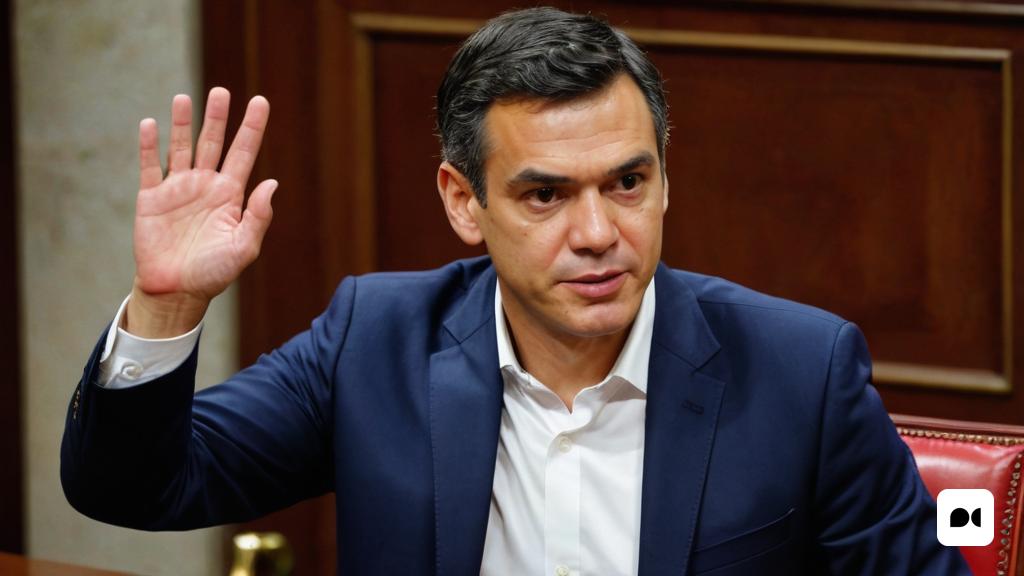A reputation at stake
Pedro Sánchez, known for his negotiating skills, finds himself in a decisive test. With a precarious parliamentary majority and facing accusations of influence peddling against his wife, the leader of the PSOE seeks to ensure the investiture of Salvador Illa. To achieve this, he needs the support of ERC, a party that is going through an internal crisis and has faced continued electoral difficulties and recent scandals.
The crucial role of financing
In the negotiations with the PSC, ERC has put four key demands on the table, with financing being the most important of all. ERC insists on the creation of an economic agreement, a proposal that the Spanish government, led by vice president Maria Jesús Montero, has flatly rejected.
Alternative plans for La Moncloa
Despite the initial refusal, La Moncloa has initiated a series of plans B. According to various Madrid media reports, the government has decided to resort to old, unexecuted agreements from last November for Sánchez’s investiture, and even to pacts frozen for years. previous.
Rodalias and debt forgiveness
One of the resurrected agreements is the transfer of line 1 of Rodalies, a significant gesture in the negotiations with ERC. Although it had already been agreed in November of last year to guarantee Gabriel Rufián’s vote, the process will only begin in January of next year.
Renegotiation strategies
This tactic by Sánchez has proven extremely effective. The delay in the implementation of agreements allows for their constant renegotiation. Even Marta Rovira, general secretary of ERC, has demanded a meeting with Sánchez to address the fulfillment of these unfulfilled commitments.
Debt forgiveness
Another offer from the PSOE to ERC is to accelerate the forgiveness of 15 billion euros of debt of the Generalitat with the State. This pact extends to all autonomous communities, as clarified by La Moncloa.
The return of the consortium
The PSOE has also dusted off agreements that are more than 15 years old, such as the creation of a fiscal consortium agreed in 2006 during the discussion of the Statute. This original proposal included a Generalitat Tax Agency to manage all Catalan taxes, but it was cut and never implemented.
Historical negotiations
The consortium, designed to be an equal collaboration between the State Tax Administration Agency and the Generalitat, was a compromise after the reduction of the Statute in Congress. This cut was the result of negotiations between the PSOE and CiU, in an attempt to compensate for the elimination of the initially proposed economic agreement.
Zapatero’s context
The final agreement of the new Statute approved in Congress and later cut by the Constitutional Court was the product of negotiations between José Luis Rodríguez Zapatero and Artur Mas. ERC, which voted against the consortium, considered it insufficient since it did not change the financing model or increase the funds available for Catalonia.
The tax agency
Although the consortium did not materialize, the Tax Agency of Catalonia was created in 2007 to manage own and assigned taxes. However, this agency does not collect more than 9% of the taxes paid by Catalans, in contrast to the original proposal of the Statute.
ERC’s current position
ERC maintains its demand for an economic agreement and is not satisfied with the proposal of the consortium reborn by the PSOE. Catalan negotiators insist on the need for Catalonia to leave the common financing regime to have a model similar to that of the Basque Country and Navarra.
Change in the financing model
The government of Pere Aragonès has proposed a unique financing proposal that includes a contribution to the territorial rebalancing fund, an offer not well received by Junts. However, ERC and Junts consider that a model similar to that of the Basque Country and Navarra based on article 150.2 of the Constitution is constitutionally viable.
The financing challenge
Financing has always been a thorny issue in negotiations between the central government and the Generalitat. ERC needs a resounding victory on this point to convince its militants to support the investiture of Salvador Illa. The deadline to reach a pre-agreement, according to ERC, is close to ending, with an ultimatum set for the end of the month.

